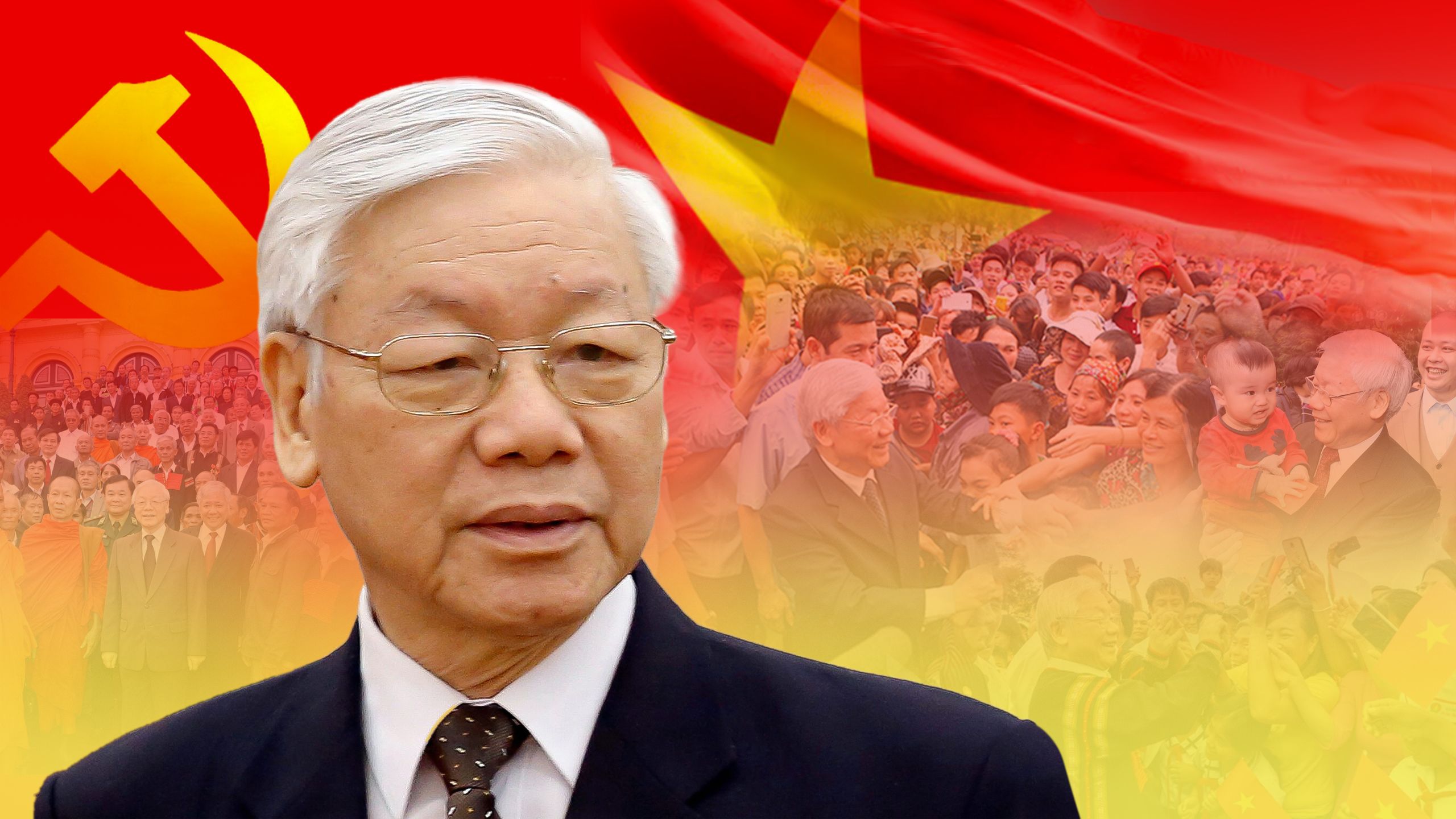End of an Era: The Legacy and Transition Following Nguyen Phu Trong’s Death
International International NewsPosted by pallavi on 2024-07-26 06:17:55 |
Share: Facebook | Twitter | Whatsapp | Linkedin Visits: 102

Nguyen Phu Trong, a towering figure in Vietnamese politics and the General Secretary of the Communist Party of Vietnam (CPV), has passed away at the age of 80, marking a significant turning point in Vietnam's political landscape. Trong's death on July 19, 2024, due to old age and serious illness, has triggered a series of high-profile tributes and political shifts both within Vietnam and internationally.
Background and Legacy
Nguyen Phu Trong had been a central figure in Vietnamese politics since he assumed the role of General Secretary of the CPV in 2011. His tenure was marked by a strong focus on anti-corruption and economic growth. Under his leadership, Vietnam experienced significant economic progress, with substantial increases in GDP per capita and a series of free-trade agreements that opened up the country's economy to global markets. Trong's administration was credited with accelerating Vietnam's economic development while maintaining a strict adherence to socialist principles.Trong’s anti-corruption campaign, often described as the “blazing furnaces” campaign, was one of his most notable achievements. This initiative aimed to clean up the party and the government by targeting corrupt officials and criminalizing corrupt practices. While the campaign resulted in the indictment and imprisonment of thousands of officials and business leaders, it also drew criticism for its potential role in creating political instability and a slowdown in business transactions. Despite the significant number of officials prosecuted, Vietnam continued to perform poorly in international corruption rankings, suggesting that the campaign did not fully address the systemic issues of corruption.
Political Turbulence and Succession
Trong's death has come at a time of considerable political turbulence in Vietnam. His passing was announced shortly after he had begun to step back from his duties due to health concerns, delegating his responsibilities to President To Lam. This transition was part of a broader shift in Vietnam’s political structure, which has recently seen several high-profile resignations and scandals as part of an ongoing anti-corruption campaign.The CPV’s announcement that Trong would hand over power to To Lam—a former public security minister and key figure in the anti-corruption drive—was seen as a strategic move to ensure continuity in leadership. The party is now facing the challenge of managing the political fallout from Trong's death and navigating the complex process of succession.Trong was known for his careful balancing act in foreign relations, maintaining Vietnam's ties with both China and the United States. His foreign policy approach, often referred to as the “bamboo school,” involved deftly navigating between competing powers while upholding Vietnam's national interests. This approach was seen as a significant achievement in managing Vietnam’s international relations and contributing to its economic growth.
International Reactions
The international community has responded to Trong’s death with expressions of respect and condolences. Indian National Security Advisor Ajit Doval attended the state funeral in Hanoi, while Defence Minister Rajnath Singh paid tributes at the Vietnamese Embassy in New Delhi. Both officials highlighted Trong's contributions to strengthening bilateral relations between Vietnam and their respective countries.World leaders, including U.S. President Joe Biden and Russian President Vladimir Putin, also acknowledged Trong’s influence. Biden described Trong as a champion of U.S.-Vietnam ties, while Putin hailed him as a true friend of Russia. These statements reflect Trong's significant role in fostering international relationships and his impact on global diplomacy.
Internal Implications and Future Outlook
Trong’s death raises questions about the future of Vietnam's political system and the CPV’s ability to maintain stability. His anti-corruption campaign, while aimed at strengthening the party, has also led to significant political and administrative upheavals. The purging of top officials and the consequent reduction in the talent pool available for succession have created a precarious situation for Vietnam's leadership.The CPV now faces the task of managing the transition to new leadership and addressing the challenges posed by the political and economic environment. Analysts suggest that the party’s focus on anti-corruption and its centralization of power around Trong may have inadvertently created conditions of instability and weakened the party’s ability to effectively govern.
Search
Categories
Recent News
- Dreamliner Radar Glitch Grounds Delhi-Bound Flight
- Deputy CM Pawan Kalyan's State Tour: Prioritising People's Welfare
- Indian IT Giants Stumble: Anthropic's AI Launch Triggers Global Sell-off
- T20 Champions Battle: India Faces South Africa in Warm-Up Clash
- Championing Farmers: Andhra Pradesh's Innovative Agricultural Revolution
- Andhra Pradesh Land Acquisition Sparks Livelihood Crisis
- CBSE Empowers Teachers with Practical Skill Education
- Renowned Poet's Daughter Accuses Husband of Abuse and Child Confinement